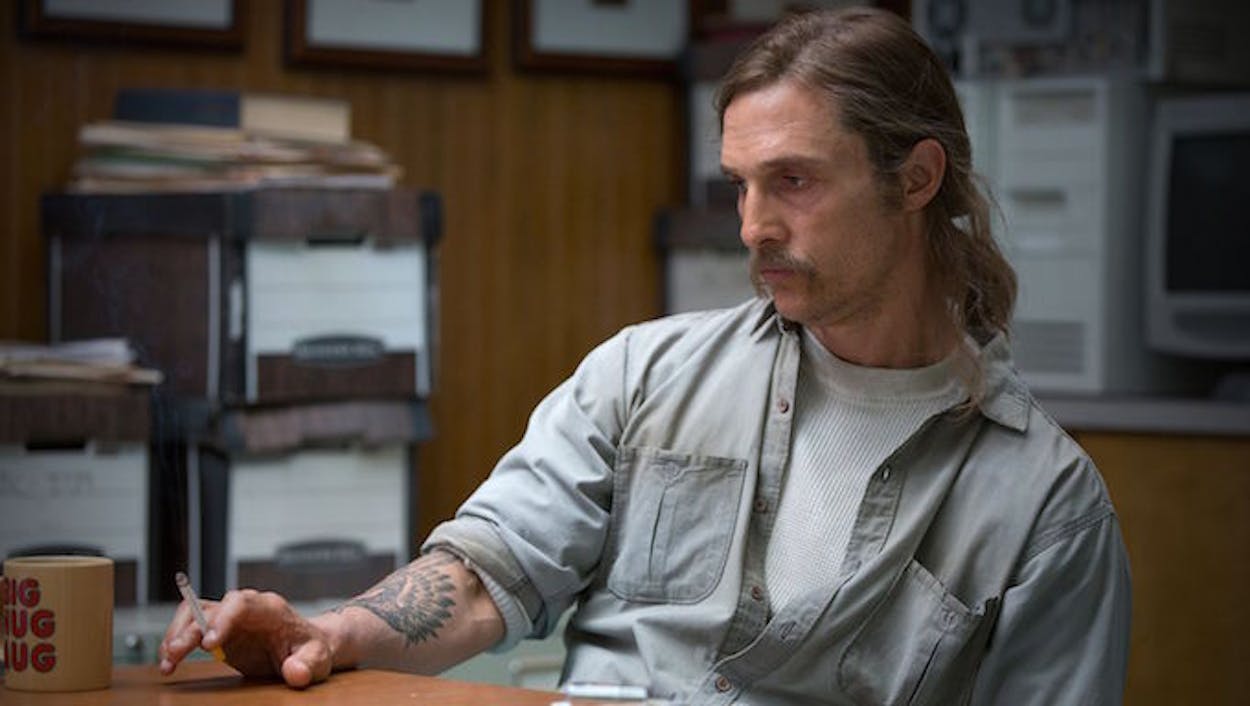Smoking bans have become less controversial as more of them have been enacted around the state (and, indeed, around the world). And bans in government buildings are especially hard to argue with: those spaces belong to everyone, and “Keep your government out of my government buildings” isn’t the catchiest slogan.
Still, one Texas town has successfully kept one room out of the ban: the police interrogation room. As the Houston Chronicle reports, in Brazoria, the police chief managed to get the city council to agree to overturn the law restricting smoking in the room:
Council agreed unanimously and Brazoria, as best anyone can tell, is now the only city in Texas, and possibly in the entire country, where a detective can slide a pack of smokes across the table in hopes of softening up a suspect or putting a nervous witness at ease.
Police Chief Neal Longbotham told the council that the investigator for his seven-officer department argued that allowing suspects or witnesses to smoke put them at ease and made it easier to establish a rapport. “She felt that they are under pressure and under stress and sometimes they want to smoke a cigarette to relax themselves,” Longbotham said.
Before the change, officers would interrupt questioning to take suspects or witnesses outside for a smoke. Refusing to allow smoking during an interview would only make interviewees more tense and uncomfortable, Longbotham said.
The Chronicle describes it as a unique law—the expert they talked to couldn’t find another like it on the books in Texas. The topic has been a subject of fascination for some time, though: Googling “can you smoke in interrogation rooms” brings a number of posts on sites like Yahoo! Answers from curious citizens. Here’s one great answer from a fella who goes by the name “Jack”: “I’ve been in a lot man and usually not. That stuff is just movies maybe in military interrogations but not police ones,” he writes, citing “myself” as the source—don’t mess with Jack.
Austin’s 2013 policy document appears to contradict the Chronicle’s expert (and apparently Jack was never arrested in the city). On page 527 of the document, it notes the smoking/tobacco use policy, which reads:
946.1 PURPOSE AND SCOPE
The U.S. Surgeon General has determined that second-hand smoke is hazardous to one’s health. Tobacco products may also be offensive to employees and the public.946.2 POLICY
(a) Employees shall not use tobacco products (e.g., cigarettes, chewing tobacco) while engaged in official police business with the public or in any City building or City vehicle.
1. This provision does not apply when conducting a custodial interrogation in an interview room, which is designated as a smoking area in accordance with the City ordinance and when the person being interrogated is also a user of tobacco.
In Tokyo, meanwhile, banning smoking in interrogations was a relatively new decision, first enacted in 2009.
It makes sense why police in Austin and Brazoria would want to lift a ban on smoking during interrogations—interrupting questioning to let someone out for a smoke seems like a significant interruption to the flow of what is a fairly well-scripted performance. But it also makes sense why places might not want the ban lifted: nicotine withdrawal has a psychological effect on its subject—one that may or may not help authorities get information during an interview.
In 2008, for instance, Michael F. Jacques was arrested in Massachusetts for arson, after the Macedonia Chuch of God in Christ in Springfield was set ablaze. During his interrogation, Jacques signed a confession (as did his two co-defendants). Shortly after, however, Jacques recanted the confession, citing the effects of drug and nicotine withdrawal on his state of mind. It wasn’t enough to clear his name—Jacques was convicted and sentenced to fourteen years in prison—but the potential for nicotine withdrawal as both an interrogation tactic and a part of a person’s defense is fascinating.








